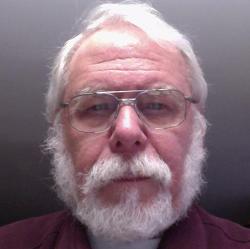
There is a doctor in the house, and he is also a ODS-C! Meet medical oncologist, Michael Serwint, MD, ODS-C. For more than 30 years, Michael’s practice was in Medical Oncology and he was not ready to retire. The Cancer Registry was in the same office as his practice in Pennsylvania and he was somewhat familiar with what they did. After a lengthy conversation with the registrar and multiple answered questions, he decided to investigate the possibility of working in the Cancer Registry.
Michael retired from clinical practice in 2008 and was interviewed by Inez Inman, BS, RHIT, ODS-C, Cancer Registry Manager at Wake Forest University Baptist Medical Center. He said Inez was very skeptical of his intentions and showed him all the fields in the abstract, one by one. She wanted him to know that he could not rely on his experiences as a medical oncologist and that there were CoC standards that must be met to maintain an approved cancer program. Needless to say, he was hired as an oncology data analyst.
In September of 2009, Michael passed the ODS exam, stating that the most difficult part of the exam was the CoC standards as Inez had predicted. Over the years, Michael says that he has learned the most from listening to other registrars and enjoys communicating with them. Knowledge shared is a powerful tool and increases trust and awareness that although we may be working remotely, we are not alone.
Michael would like to share with other registrars the importance of documentation and that we should not get fixated on what ambiguous terminology is about. For example, “Radiologist states no involvement, and the surgeon did say involvement.” The surgeon is correct – he sees the involvement. But it is necessary to document both the radiologist’s and the surgeon’s conclusions in the text field. And also remember, treatment affects patient outcomes.
Michael and his wife both belong to the congregation of The Nativity of the Holy Virgin Orthodox Church in Charlotte, NC, and are involved in their church group, Charlotte Rescue Mission. In this three-month program, they cook lunch for the group every Saturday. He is also an avid reader and enjoys hiking, photography, and programming.
Michael had the advantage of being an oncologist before becoming a ODS. He now has the unique privilege of not only treating patients but also going the next step to analyzing the data. His story shines the light on the role of the cancer registrar as an especially important part of the team that works to provide better outcomes for cancer patients.